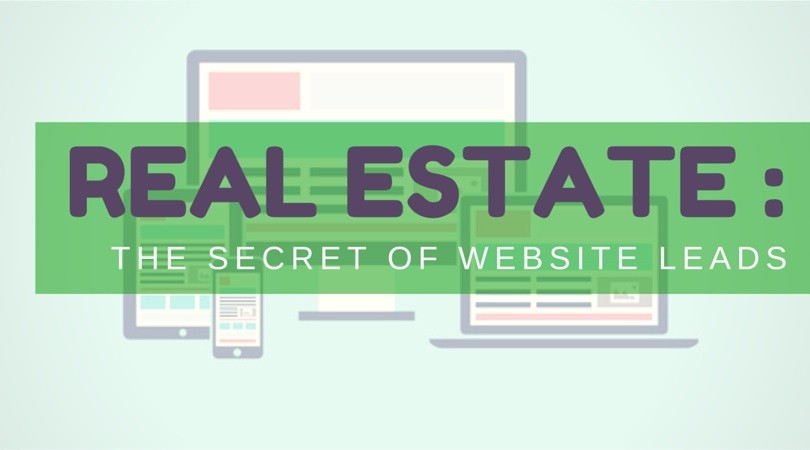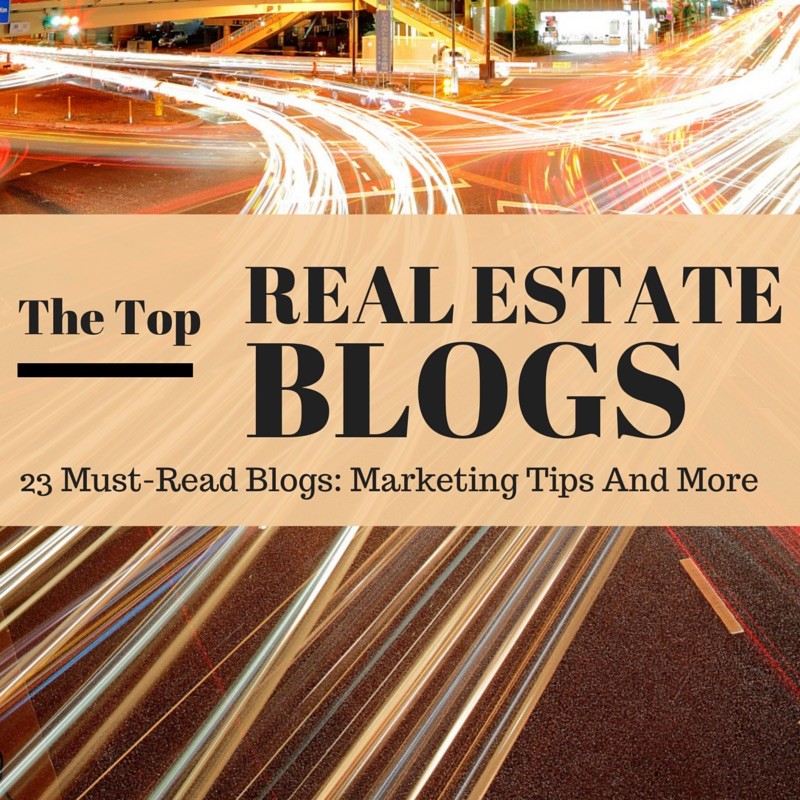The Ultimate Real Estate Website Branding Guide
When you work online, your brand matters. In this real estate website branding guide, I'll show you how to craft a brand that will lead to more sales.
Once you have your slogan picked out and logo design, it’s time to set up your website. There are many things to consider when it comes to both the technical aspects and the overall aesthetics of your website. With technical aspects, you have to consider SEO, content, contact forms, and landing pages. We cover all of these topics in more detail in our blog.
Aesthetics may seem like just appearances but they can make a huge difference in how visitors perceive your brand and company. The look, feel, design, and ease of navigation of your website will help your visitors feel more inclined to connect and potentially turn into clients. In this real estate website branding guide, we’ll go over all the considerations to make while establishing your site to attract leads and grow as an agent.

It’s important to consider what type of website you have as the features are very different. Do you have the ability to program pop-ups for your website? Can you create custom forms? These are great opportunities to sprinkle your branding across the site while also generating leads.
There are real estate websites and websites you use for real estate. Real estate websites are specifically designed with templates and designs to showcase your skills and portfolio. Websites that you use for real estate and blank slates that you transform to highlight your key selling points to visitors to attract leads. Both have their benefits and drawbacks. Real estate websites are much easier to use as they have everything you need for your specific industry. Other websites may offer more in the way of designs and customizability which helps if you are looking to achieve something out of the norm or save money on a hosting platform that specifically caters to real estate.
Depending on the kind of website or hosting platform you use for your real estate site, you may not have full control over certain details. Do you have full control of HTML or changing your design or logo? These are all important factors to consider. If you don’t have access to these specific customization tools, contact your webmaster to let them know what you have planned so they can plan accordingly.
Designs play a significant role in how your site is perceived by visitors. If you are looking to target a specific audience, your website design can play into the branding you’re aspiring for to make sure you are attracting the right type of leads. Do you have access to different designs on your website? If so, try a few out to see how they feel. Many websites, like LeadSites, offer choices between several templates. Swap yours around and see if you like how your site feels. If not, keep swapping until you find the one that feels right for you.

The type of real estate agent you are will dictate what type of website you’ll need. This depends on experience, time in the industry, and your aspirations as far as the target audience to generate the most leads.
If you’ve been doing this for a while, you probably already have a good idea of what works for your area. Play to your strengths and design a website that works for your workflow. If you love reaching out to leads, make it easy to contact you. Set up your contact info right on the top of your homepage. Some agents even work these details into their logos.
If you’re well established in your area, make sure your website reflects that. Mention how long you’ve been working in your town and the number of people you’ve served in that time. This plays on your experience and reputation in a way that will help attract leads and convert them into clients and sales.
If you’re a new agent, you may not know exactly what you want to become. While this may seem overwhelming, you have the benefit of near-limitless options. Some agents love using videos to highlight their properties and their local area. Grab your cell phone and take some footage as content to upload on your YouTube channel and post it to your homepage as well. This content will help establish yourself as a local expert in your area which builds confidence among site visitors and leads.
When setting up your website, you’ll have to decide on how you want to attract leads. There is a content-based approach and some are more direct marketing efforts. If you’re planning on setting up a content-focused approach, it helps to have a website that highlights your blog. For this to succeed, you’ll need to commit to posting regularly. Sharing your blog content from your website across social media is a great way to grow an audience and increase traffic to your site.
Some agents prefer a more direct approach, sharing their listings and advertising online. This cuts straight to the point and is perfect if your target audience is looking to cut straight to the chase. To do this, you’ll need to develop your website for this type of design which focuses on your listings and information. See if your website will allow you to create customized listings and neighborhood farming pages. Having a dedicated real estate website is great for this as it already has the tools in place to set all of this up.
If you’re not sure how you want to attract traffic to your website, don’t feel alone. A lot of agents are in this situation. You don’t need to decide right away. It helps to set up your website based on your logo, listings, and design. This way you can make the necessary changes when you start working on your sales funnel to develop your site in a way that best convert leads.
If you need some inspiration, look at other agents’ websites to see how they designed them. Most agent websites will have a logo at the bottom of the page telling you the webmaster and hosting platform they used. You can use this information to decide what company you want to host your real estate website.
By this point, you’ve likely set up your logo and slogan. This should have started to create an idea of what your overall brand and image will be as a real estate agent. Every aspect of your website should also include the feel and brand of your slogan and logo.

The purpose of your logo and website design is to make your brand easily recognizable. Making sure that your brand is recognizable and cohesive is important for attracting the right leads. The colors should match the colors you used for your logo. The tone of your website’s content should also match the voice you’re trying to achieve. If the tagline in your logo is “Santa Fe’s #1 Family Realtor”, your homepage should probably feature beautiful photos of Santa Fe and tips for families moving to the area.
Another consideration for reflecting your brand is whether or not to use a headshot. Many agents like to place one towards the top of the page as an introduction to who they are. This helps those looking to advertise their personality. However, you can also choose to illustrate the area you’re selling in or the things that make your agency unique. This way you can opt to save the headshot for your About Us page.
When it comes to website design, less is often more. Designs and layouts that are too busy or full of excess content may overwhelm site visitors. If you’re planning to use video on your site, a single animated video at the top of the page is often more effective than a collection of youtube videos embedded across the page. You can always link out to additional content or organize your pages in a tidy way that doesn’t come across as too busy.
The design of your website can affect your visitors on a subconscious level. You may have heard about various color schemes as well. As you work through your website branding, take frequent steps back to put yourself in your target client’s shoes to make sure it is communicating the right things.
Agents who sell lofts and luxury real estate in the city are going to want a very different design from small-town agents selling in the suburbs. Will your clients respond better to a sleek, streamlined design, or a comfortable, soft one?
EAP’s very own Christy goes into more detail on this concept in her video on real estate website branding – Check it out below!
You know your ideal clientele better than anyone so make sure to take some time to consider the wants and needs of your leads and design your site around those. If you’re having some trouble honing in on your ideal target clients, try writing down the names of the top 10 clients you’ve ever had. See if you can find their social media account and print out their entire “About” profile. Compare and find similarities among these top 10 clients. From this exercise, you’ll have actual images and snapshots into the lives of the people your business most wants to help.
Branding your website involves incorporating all the different aspects of your brand and image as a real estate agent into every facet. While it is quite a bit of work initially, maintenance is usually fairly straightforward so it is worth the extra time and attention to detail to make sure your website accurately portrays your skills and experience as an agent. Here are a few other things to consider.
It’s easy to lose your identity among your competition. Try to focus on what makes you unique, and use that when you’re branding your website. One way to find the answer to what sets you apart is to look at how you are making the buying and selling process easier for your clients. Do you offer paperless processing systems? Maybe you can focus on your selling speed if you have an impressive track record of selling properties quickly. Highlight what makes you a great agent.
Think about where you want to be financially in 5-10 years and what type of team you want to build. Consider your personal goals and your ideal day-to-day and how these values fit into a business plan.
Google analytic research has shown that consumers love easy-to-navigate and well-designed sites. This means incorporating these key elements:
If you are looking to learn more about website branding, here are a few additional resources. The first step towards website branding is developing your brand, here is a helpful video guide for crafting your brand as a real estate agent.
Remember that your message is just the beginning! Once you’ve crafted your brand, you’ll need to start promoting it constantly. Check out the rest of our blog for tons of helpful tips on promoting your brand and driving traffic to your website.

There is a very defined way to get real estate leads online. This blog post is dedicated to making sure your website gets you leads now.
February 17, 2015

Looking to get better in real estate? These real estate blogs will teach you everything from social media marketing to advanced business building tactics.
May 17, 2015

Want free real estate leads from Facebook? You can find them with a tool that's so obvious you'll wonder why you didn't think of it sooner.
March 1, 2017
Let’s boost your lead gen.

Connect your local MLS to Facebook to promote all properties in your MLS or create any specific niche catalog of listing you want to sell using dynamic Facebook ads. Here are just some of the ways you can use these new types of ads to stand apart from the competition: